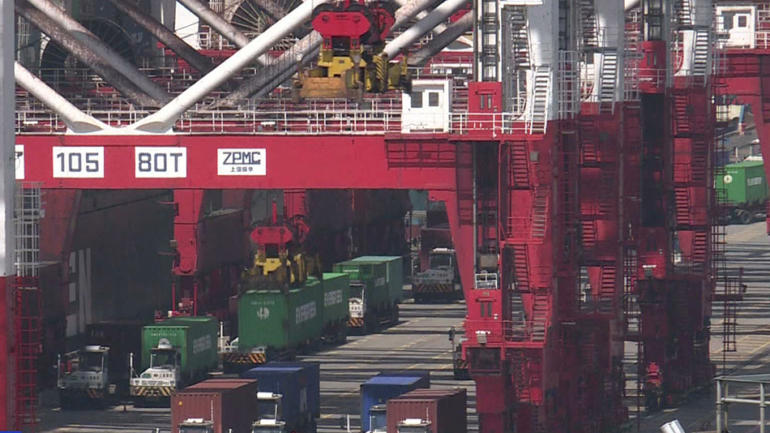Optimism from both the United States and China over trade negotiations. U.S. officials are confident of a “phase one deal”.
China’s Ambassador to the U.S. also believes a deal could be imminent.
He made the comments at a major conference on U.S.-China economic relations.
CGTN’s Wang Guan reports.
After nearly two years and 13 rounds of high-level consultations, Beijing and Washington once again said they are close to a deal. Despite the 24-hour news cycle and shifting headlines coming out of Washington, China’s top diplomat to the United States, believes the two sides will pull it off this time around.
“I believe that we will be able to make a mutually-beneficial deal, as long as we both show sincerity and reach out to each other on the basis of equality and mutual benefit,” said Cui Tiankai, China’s Ambassador to the U.S.
Cui made the remarks at the Horasis China Meeting, a conference that has been called the “World Economic Forum for emerging markets.”
Cui also used the occasion to reject statements by hawkish Washington strategists who favor the “decoupling” of U.S.-China relations.
“This is neither rational nor realistic, ” Cui said. “Because to decouple from China is to decouple from opportunities, it is to decouple from a hopeful and developing world.”
Two Republic governors from so-called “red states” that voted for President Donald Trump back in 2016 echoed that sentiment. They said the tariff war has hit local farmers hard and they want U.S.-China economic relations to be restored sooner, rather than later.
“This tariff disputes that we’ve had has dramatically impacted South Dakota,” said Kristi Noem, the Governor of South Dakota. “We are seeing as a state where their incomes…um..there are less opportunities, lower prices, our farmers cash aren’t flowing quite well and they are struggling. And we’d love a finalized agreement with China and get it across the finish line.”
Pete Ricketts, the Governor of Nebraska also stable market conditions for his state’s farmers to export its products.
“The state of Nebraska is about half of all the U.S. beef that is going to China,” Ricketts said. “What we’d like to see is just a consistent and growing market place to have our farmers and ranchers be able to sell their agricultural goods.”
Bringing together around 300 participants from U.S. and Chinese business and government communities was Frank-Jurgen Richter, aa former director of the Swiss-based World Economic Forum. He is now the Chairman of Horasis, a think tank that is also based in Switzerland.
“They all hope we will overcome these issues.The reason they are all here is to meet their U.S. counterparts, to engage in joint ventures and joint investments and in technology exchange,” Richter said. “Despite all these issues, business is going on, on the company to company level.”
Chinese President Xi Jinping and U.S. President Donald Trump were supposed to announce a deal at a leaders’ meeting of the Asia Pacific Economic Cooperation forum, better-known as APEC, in Santiago, Chile, but the meeting has since been canceled by Chile due to growing unrest in the country.
Despite the cancellation, statements from Beijing and Washington suggest the two sides are still aiming for a November signing. The White House said over the weekend that U.S. and Chinese negotiators have made “enormous progress” toward finalizing a phase-one agreement, although the deal was not yet 100% complete.
 CGTN America
CGTN America

